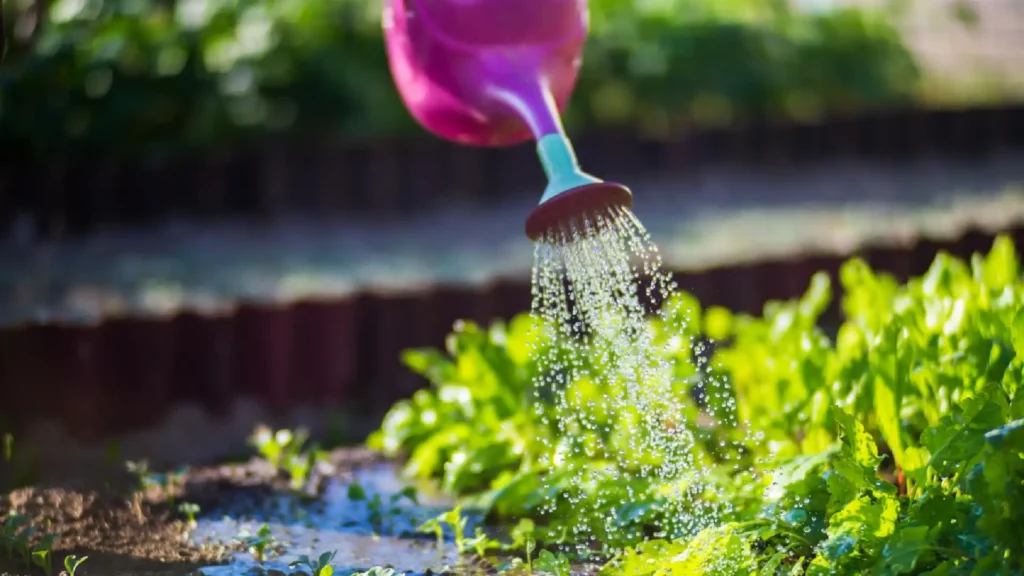In an era of heightened environmental awareness and rising utility costs, it has become imperative to explore innovative ways of resource conservation. Among these precious resources is water, which often goes to waste in our daily routines, particularly during showers.
Did you know that you can significantly contribute to water conservation efforts and save both money and water by reusing Saving Shower Water For Garden? This practice not only benefits your wallet but also plays a crucial role in promoting sustainable living.
The Multifaceted Benefits of Saving Shower Water for Garden
Before we embark on the practical aspects of collecting, storing, and using shower water for your garden, let's take a closer look at the myriad benefits associated with this eco-friendly endeavor.
- Water Conservation: A Necessity of Our Time
Water scarcity is a worldwide problem. The EPA states that the average American family wastes a significant amount of the 300 gallons of water they use daily. Saving Shower Water For Garden can help decrease household water usage.
- Lower Utility Bills: The Financial Incentive
Saving water has a positive impact on the environment and lowers utility costs. Reducing water consumption cuts monthly expenses, making it both eco-friendly and financially wise.
- Healthier Plants: Nutrients in Every Drop
Shower water, typically free from harsh chemicals like chlorine, can prove to be beneficial for your garden. It contains essential nutrients that can enhance the soil quality and provide your plants with the moisture they need to thrive.
- Environmental Impact: Small Actions, Big Consequences
By Saving Shower Water For Garden, you're actively participating in a sustainable lifestyle. This simple practice helps alleviate the strain on local water resources and ecosystems. It's a small yet impactful step toward a more sustainable future for our planet.
Check out our post on water saving devices for taps
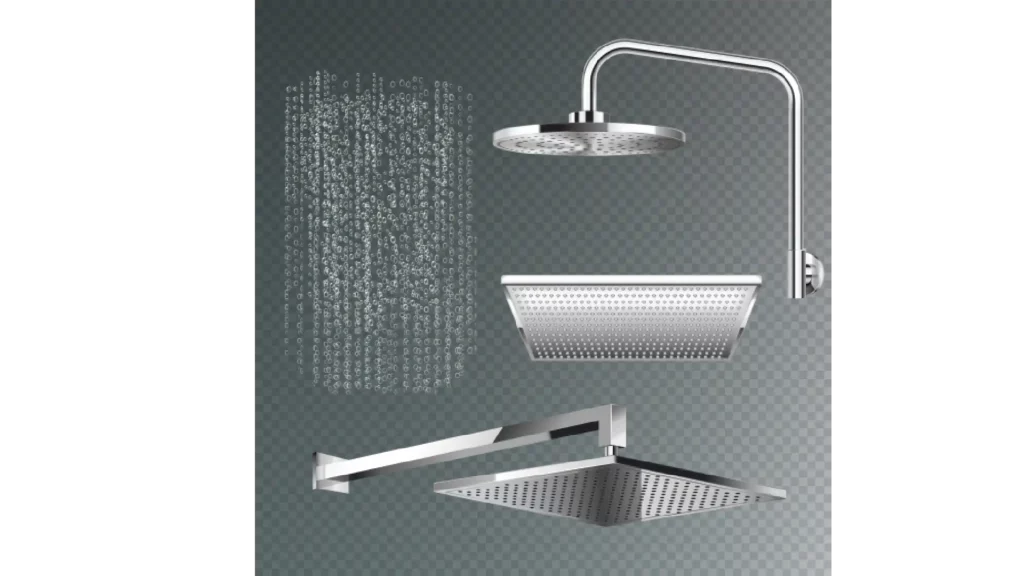
The Art of Collecting and Saving Shower Water For Garden
Understanding the significance of conserving reused water in your garden is the first step toward sustainable gardening practices.
- Use Biodegradable Soaps: When you use biodegradable soaps and shampoos in the shower, it makes the collected graywater safer for your plants.
- Filter the Water: Depending on the method you choose for collecting shower water, you may want to use a simple filter to remove debris, hair, and soap residues.
- Water Distribution: Consider investing in a drip irrigation system for your garden. Drip irrigation provides a controlled and efficient way to water your plants, minimizing wastage and ensuring that water is delivered directly to the roots where it's needed most.
- Timing Matters: Try to use the collected shower water promptly. Stagnant water can become a breeding ground for mosquitoes and other pests.
- Monitor Soil Moisture: Be mindful of your garden's moisture levels. Overwatering can be as harmful as underwatering, so use collected water judiciously.
- Legal Considerations: As mentioned in the guide, check local regulations and guidelines regarding the collection and use of graywater.
- Health and Safety: Ensure that the water collected from your shower is safe for your garden. Avoid using water that may contain harmful chemicals or contaminants.
- Winter Precautions: In colder climates, be cautious during the winter months. If the collected water freezes, it can damage your irrigation system or hoses.
- Educate Others: If you're living with family or roommates, educate them about the importance of collecting shower water and how to do it correctly.
- Regular Maintenance: Clean your buckets, containers, filters, and hoses regularly to prevent the buildup of algae, bacteria, or other contaminants that could harm your plants.
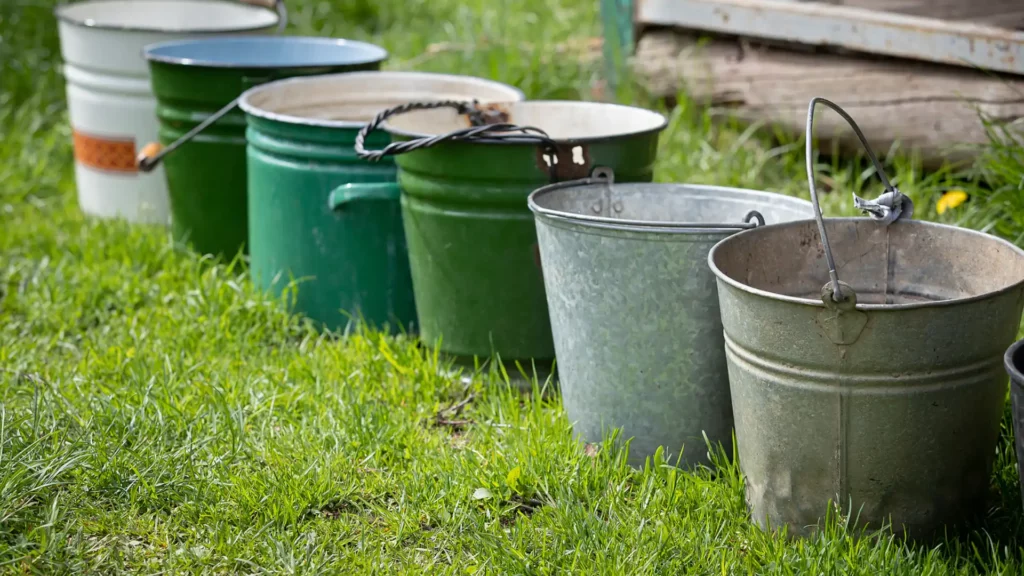
Storing Collected Shower Water: Ensuring Longevity and Quality
Once you've successfully collected shower water, it's crucial to implement proper storage techniques to maintain its longevity and quality for your garden irrigation needs.
- Selecting the Right Water Storage Containers: Choose large, food-grade containers or barrels with secure lids to store shower water safely and prevent contamination.
- Labeling and Dating Your Containers: Label containers with collection dates to stay organized and informed about water supply. Use the oldest water first for freshness and optimal garden watering.
- Mosquito Prevention Measures: To safely store water outdoors, cover containers with mesh to protect against mosquitoes and maintain water quality for your garden.
- Regular Water Rotation: To prevent stagnant water, regularly transfer stored water between containers for better oxygenation.
By maintaining proper oxygen levels, you guarantee that your garden benefits from healthy and nourishing irrigation water.
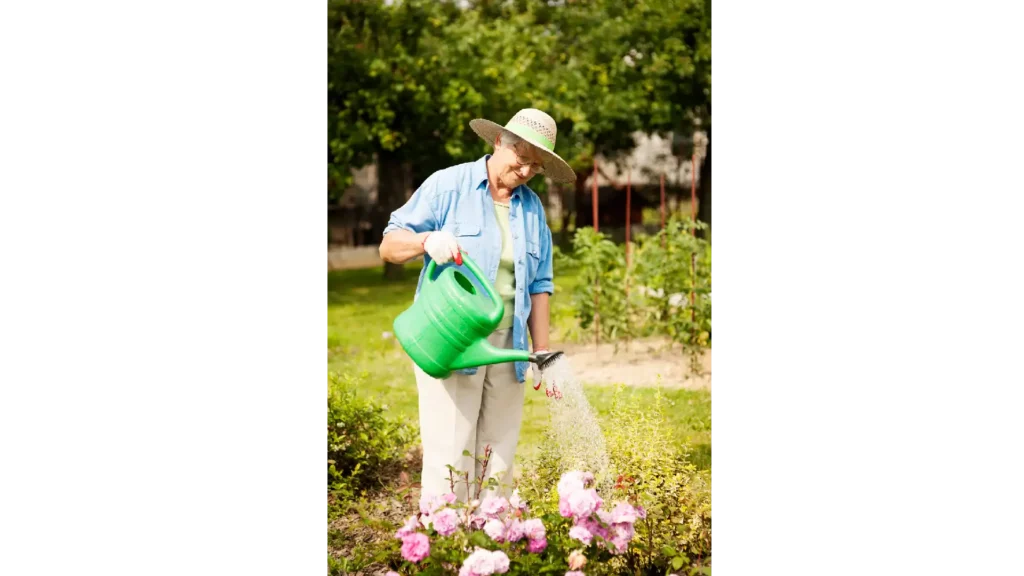
Efficient Utilization of Shower Water in Your Garden
Once you have successfully collected and stored shower water efficiently, there are several strategies you can employ to make the most out of this resource in your garden while minimizing waste and benefiting your plants.
- Watering Plants: Targeted Hydration
Use a watering can or hose to give shower water to plants' roots for hydration. Water in the morning or evening to reduce evaporation and increase absorption.
- Mulching: Retaining Moisture
Use mulch to retain soil moisture and create a better environment for plant growth. It reduces evaporation, conserves water, and decreases watering frequency.
- Drip Irrigation: Precision Watering
Consider installing a drip irrigation system in your garden for efficient watering. It delivers water directly to plant roots, minimizing waste and maximizing plant nourishment. This investment improves water utilization in your garden.
- Targeted Watering: Prioritizing Plant Needs
To further optimize your water use, prioritize watering based on your plants' needs. Focus your efforts on plants that require it the most, such as young seedlings, recently transplanted specimens, or those in containers.
By directing your collected shower water towards plants with higher water demands, you can ensure that this valuable resource is utilized where it matters most, promoting healthy growth and vitality.
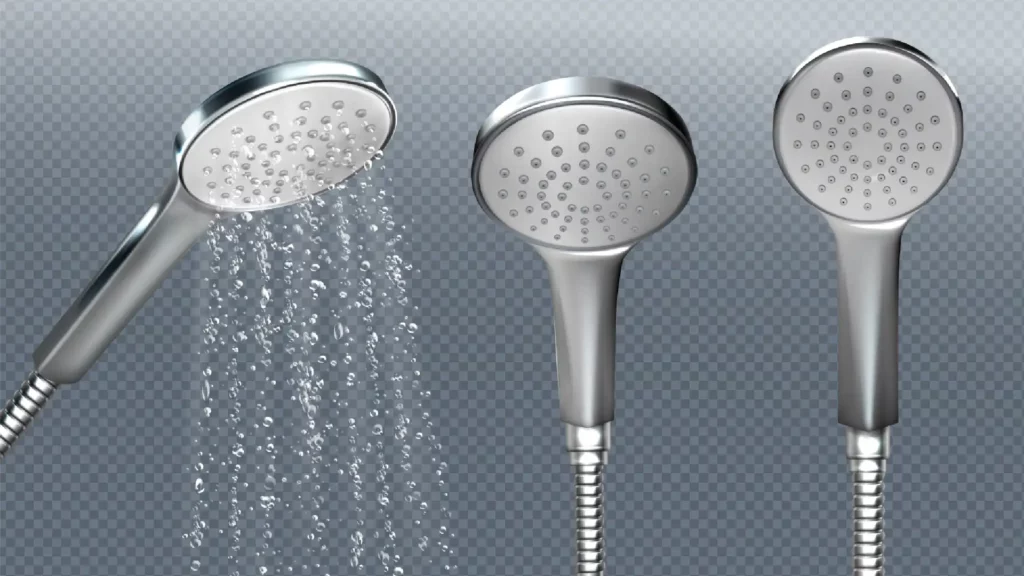
Saving Shower Water For Garden Maintenance and Safety Considerations
Maintaining the efficiency of your shower water recycling system and ensuring the safety of your garden requires careful attention to various maintenance and safety practices. Here's a comprehensive guide to help you maintain a sustainable and secure system:
Regular Cleaning: Preventing Contamination
To prevent the growth of algae and bacteria in your water storage containers, it's essential to clean them periodically. Empty the containers and thoroughly rinse them before refilling them with fresh shower water.
Water Quality Testing: Monitoring Water Health
Regularly monitor the quality of your stored shower water. Conduct water quality tests to check for any changes in color, unusual odors, or signs of contamination. If you notice any abnormalities, it's a sign that the water may need to be replaced.
Local Regulations: Compliance is Key
Stay informed about local regulations and guidelines related to graywater use and storage. Compliance with these regulations is essential for your safety, the well-being of the environment, and legal adherence.
Children and Pets: Safety First
Take precautions to ensure that stored water is inaccessible to children and pets. Safeguarding the storage containers and their access points will prevent accidents and potential health hazards. Consider using childproof locks or securing containers in areas that are out of reach for added safety.
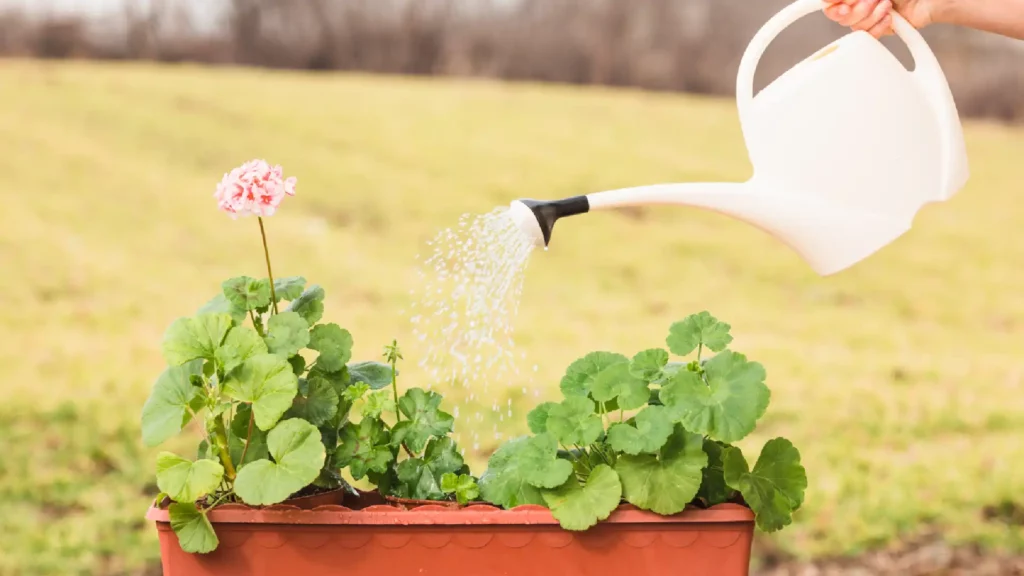
Advanced Projects to Elevate Your Shower Water Recycling System
- Rainwater Harvesting System: Create a sustainable oasis by setting up rain barrels or cisterns, establishing gutter systems, and integrating rainwater into your garden irrigation strategy. Find step-by-step instructions, design considerations, and maintenance tips.
- Custom Filtration Solutions: Ensure water quality with advanced filtration techniques. Build custom filtration systems to remove impurities, chemicals, and contaminants from your shower water, making it safe for your plants. Explore different filtration media, design principles, and maintenance routines.
- Automated Watering Systems: Embrace efficiency with automated watering systems. Set up smart irrigation controllers, drip irrigation systems, and soil moisture sensors to manage shower water usage precisely. Learn about installation, programming, and troubleshooting.
- Solar-Powered Solutions: Harness the sun's energy for sustainability. Integrate solar technology into your shower water recycling system with solar-powered water pumps, timers, and heating systems. Enjoy reduced energy costs and a lower carbon footprint while ensuring your garden thrives.
- Garden Integration Projects: Seamlessly incorporate your shower water recycling system into your outdoor space for a truly sustainable garden.
Saving Shower Water For Garden Frequently Asked Questions (FAQs)
1. Why should I consider saving shower water for garden?
Saving shower water for garden offers numerous benefits, including water conservation, lower utility bills, healthier plants, and a positive environmental impact. It's a sustainable practice that aligns with eco-conscious living.
2. Is collecting shower water a complicated process?
No, it can be as simple as placing a bucket in your shower. However, more advanced methods like installing a graywater system may require professional assistance.
3. What's the difference between graywater and shower water?
Graywater refers to gently used household water from sources like showers, sinks, and washing machines. Shower water is a subset of graywater, specifically from your shower.
4. Are there any legal restrictions to using graywater in my garden?
Yes, regulations on graywater use vary by location. Check with your local authorities or water utility to ensure compliance with any legal requirements.
5. How can I ensure the collected shower water remains safe for my garden?
Proper storage, regular cleaning of containers, and labeling with collection dates are key practices to maintain water quality. Be vigilant about preventing mosquito breeding in outdoor storage containers.
6. Can I use stored shower water on all types of plants in my garden?
While most plants benefit from stored shower water, some may be more sensitive to any residual soap or cleaning products. It's a good practice to prioritize watering non-edible plants or use it sparingly on edible ones.
7. Are there any downsides to using shower water in my garden?
The main consideration is potential contamination from soap or cleaning products. However, with careful storage and appropriate usage, this can be minimized.
8. Can I use stored shower water on my indoor houseplants?
Yes, you can use stored shower water on indoor houseplants. Be mindful of any residues from cleaning products, and ensure that the water is suitable for your specific plant species.
9. How much money can I save by reusing shower water for my garden?
The amount you save depends on factors like your water usage and local water rates. However, many individuals have reported significant reductions in their water bills after adopting this practice.
10. Is it worth the effort to install a graywater system for my home?
Installing a graywater system is a more advanced step that may require an initial investment. It is most beneficial for those who are committed to long-term water conservation and have the means to set up and maintain such a system.
Saving Shower Water For Garden Conclusion
In conclusion, the practice of saving shower water for garden is a deeply rewarding endeavor, not only for the environment but also on a personal level. As someone committed to a greener lifestyle, I find solace in knowing that my efforts to collect and reuse shower water contribute to water conservation and promote a sustainable way of living.
The benefits extend beyond financial savings, encompassing healthier plants and a sense of fulfillment in knowing that my small actions make a significant impact.
Water saving device are good to save water Whether you're just starting or exploring advanced sustainability projects, remember that each drop saved is a step towards a more eco-conscious and responsible future, leaving a positive legacy for generations to come.
See also our post about water saving devices for hotels
Saving Shower Water For Garden Sources
https://www.portland.gov/water/water-efficiency-programs/save-water-home

